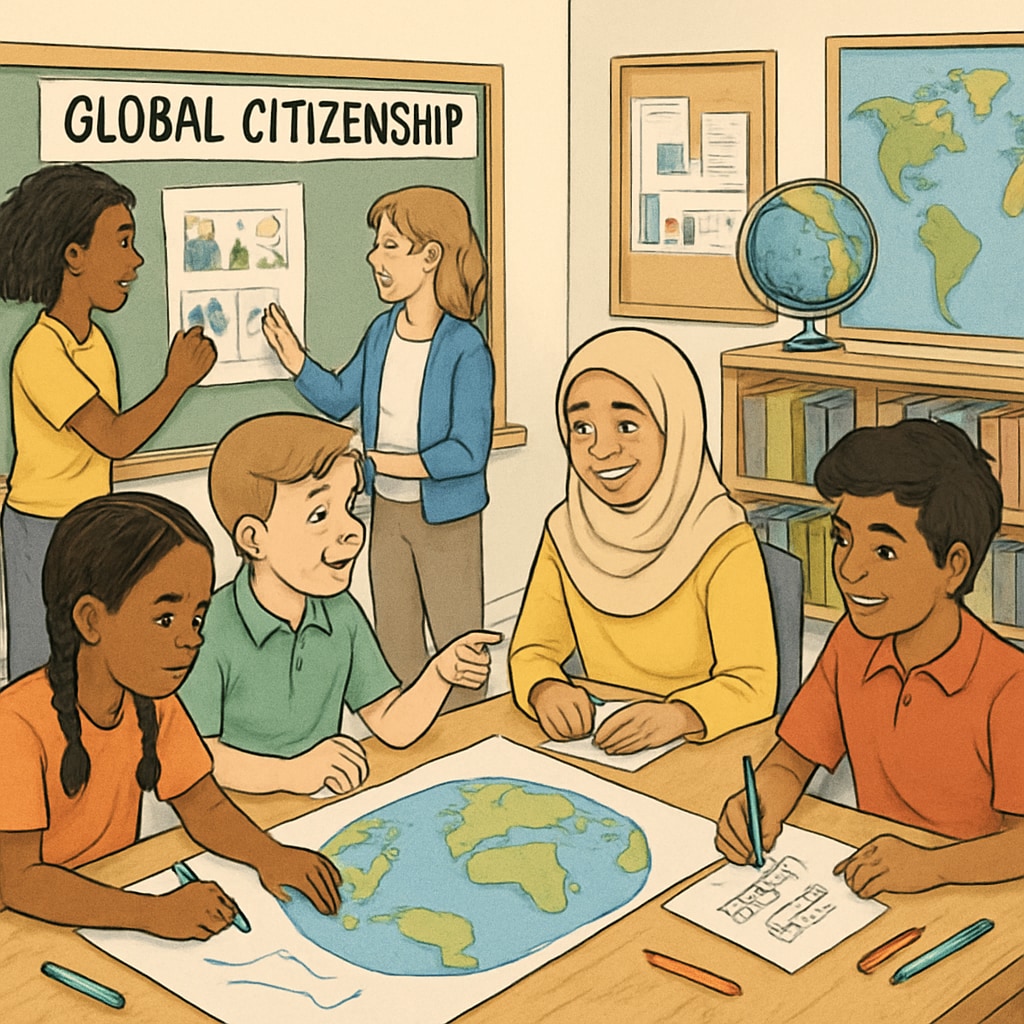Pursuing a master’s degree in Spain offers students a unique opportunity to immerse themselves in a new culture, develop their global perspective, and hone their adaptability skills. By combining academic excellence with cultural immersion, students can thrive in an increasingly interconnected world. This article delves into the role of K12 international education in preparing students for such experiences, highlights effective language learning strategies, and provides tips for cultural integration to ensure a smooth transition for those studying abroad.
Preparing for Global Education: The Role of K12 International Programs
International education programs at the K12 level lay the foundation for students to pursue advanced studies abroad. These programs emphasize the development of global competencies, including intercultural communication, adaptability, and critical thinking. For students planning to study for a master’s degree in Spain, early exposure to diverse cultures and languages can significantly ease the transition.
Many international schools incorporate dual-language curricula, exchange programs, and global citizenship projects. These initiatives foster an appreciation for cultural differences and prepare students to navigate the challenges of living in a foreign country. For example, participating in a Spanish-language exchange program during high school can help students build confidence in their language skills and familiarize themselves with Spanish customs.

Mastering the Language: A Key to Cultural Adaptation
Language is a critical component of cultural adaptation. For students pursuing a master’s degree in Spain, proficiency in Spanish not only facilitates academic success but also fosters meaningful connections with locals. While many master’s programs in Spain offer courses in English, learning Spanish can significantly enhance the overall experience.
Here are some effective strategies for mastering the language:
- Enroll in intensive language courses: Many universities in Spain offer preparatory language programs for international students.
- Use language learning apps: Platforms like Duolingo and Babbel can supplement formal education with daily practice.
- Engage with native speakers: Language exchanges and conversation groups provide practical speaking opportunities.
By incorporating these practices, students can build their language proficiency and better navigate daily life in Spain.

Immersing Yourself in Spanish Culture
Cultural immersion is essential for adapting to life in Spain. Beyond academics, engaging with the local community allows students to gain a deeper understanding of Spanish traditions and values. Here are some practical tips:
- Participate in local events: Festivals like La Tomatina and Feria de Abril offer a glimpse into Spanish culture.
- Explore regional cuisines: Trying dishes like paella and tapas can be both a culinary and cultural adventure.
- Volunteer or join clubs: Community activities provide opportunities to meet locals and build friendships.
These experiences not only enrich students’ time abroad but also help them develop a sense of belonging in their new environment.
Overcoming Challenges and Thriving Abroad
Adapting to a new country comes with its own set of challenges, including homesickness, culture shock, and language barriers. However, students can overcome these hurdles by staying open-minded and proactive. For instance:
- Maintain regular communication with family and friends for emotional support.
- Seek guidance from university support services, which often offer counseling and integration programs.
- Set personal goals to stay motivated, such as exploring a new city or mastering a cultural skill.
By embracing these strategies, students can transform challenges into growth opportunities, making their study abroad experience both rewarding and memorable.
In conclusion, studying for a master’s degree in Spain is not just an academic pursuit but also a transformative cultural journey. By leveraging the skills developed through K12 international education, mastering the language, and immersing themselves in the local culture, students can thrive in this vibrant and dynamic environment. As the world becomes increasingly interconnected, the ability to adapt to new cultural contexts will remain an invaluable asset.
Readability guidance: This article uses short paragraphs and lists to improve readability. The active voice is prioritized, and transitions like “for example” and “in addition” are used to ensure a smooth flow. Images are suggested to visually complement the content.


